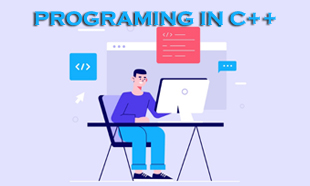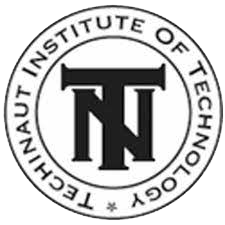0
A Deep Dive into the "Programming Course in C++" Program at DINESH EDUCATION, a Techinaut Institute of Technology Franchise in SEMILIGUDA, ODISHA.
In the realm of computer programming, proficiency in C++ is highly valued for its versatility, performance, and widespread use in various domains such as software development, game development, system programming, and more. Recognizing the demand for skilled C++ programmers, Dinesh Education, a franchise of Techinaut Institute of Technology, offers a six-month Programming Course in C++. Situated in Semiliguda, Odisha, this program aims to equip students with the knowledge and skills needed to become proficient C++ programmers. This essay provides a detailed overview of the course curriculum, covering its objectives and each section comprehensively.
THE OBJECTIVE OF THE COURSE:
The Programming Course in C++ at Dinesh Education is designed to achieve the following objectives:
SECTION 1: INTRODUCTION TO C++
- Understand the fundamentals of C++ programming language.
- Familiarize students with the history and features of C++.
- Introduce the role of C++ in modern software development.
SECTION 2: OBJECT-ORIENTED PROGRAMMING CONCEPTS
- Understand the principles of object-oriented programming (OOP).
- Learn about classes, objects, inheritance, polymorphism, and encapsulation.
- Explore the benefits of using the OOP paradigm in software development.
SECTION 3: THE BASICS OF C++
- Learn about basic syntax, data types, and variables in C++.
- Understand input/output operations and formatting in C++.
- Explore basic programming constructs such as loops and decision-making statements.
SECTION 4: WORKING WITH OPERATORS AND EXPRESSIONS
- Understand various operators and their precedence in C++.
- Learn about arithmetic, relational, logical, bitwise, and assignment operators.
- Explore the use of expressions and their evaluation in C++.
SECTION 5: CONTROLLING THE PROGRAM FLOW
- Learn about conditional statements such as if, else-if, and switch-case.
- Understand looping constructs, including for, while, and do-while loops.
- Explore the use of break and continue statements for flow control.
SECTION 6: USING FUNCTIONS/PROCEDURES
- Understand the concept of functions and their role in modular programming.
- Learn about function declaration, definition, and invocation.
- Explore the use of function parameters, return types, and scope.
SECTION 7: POINTERS AND ARRAYS
- Understand the concept of pointers and their manipulation.
- Learn about pointer arithmetic, pointer-to-pointer, and pointer-to-array.
- Explore the use of arrays and multi-dimensional arrays in C++.
SECTION 8: BINDING DATA AND FUNCTIONS
- Learn about classes and objects in C++.
- Understand data encapsulation, abstraction, and access control.
- Explore member functions, constructors, and destructors in classes.
SECTION 9: FUNCTION AND OPERATOR OVERLOADING
- Understand the concept of function overloading.
- Learn about operator overloading and its syntax in C++.
- Explore the benefits and limitations of function and operator overloading.
SECTION 10: REUSING CLASSES
- Learn about inheritance and its types in C++.
- Understand how to derive classes from base classes.
- Explore the use of inheritance for code reuse and extension.
SECTION 11: VIRTUAL FUNCTIONS AND POLYMORPHISM
- Understand the concept of polymorphism in object-oriented programming.
- Learn about virtual functions, abstract classes, and interfaces.
- Explore runtime polymorphism using virtual function overriding.
SECTION 12: TEMPLATES, EXCEPTION HANDLING, ETC.
- Understand the concept of templates for generic programming.
- Learn about function templates and class templates.
- Explore exception handling mechanisms in C++ for robust error handling.
SECTION 13: STANDARD TEMPLATE LIBRARY (STL)
- Learn about the components of the Standard Template Library (STL).
- Explore containers such as vectors, lists, stacks, and queues.
- Understand algorithms and iterators provided by the STL for efficient data manipulation.
SECTION 14: FILE HANDLING
- Learn about file streams and file modes in C++.
- Understand how to perform input/output operations on files.
- Explore file handling techniques such as reading from and writing to files.
SECTION 15: ADVANCED TOPICS IN C++
- Explore advanced features of C++, such as namespaces and preprocessor directives.
- Understand the role of C++ in software development for different platforms.
- Explore additional libraries and frameworks available for C++ development.
CONCLUSION:
The Programming Course in C++ at Dinesh Education offers a comprehensive curriculum covering all aspects of C++ programming, from basic syntax to advanced topics such as OOP, templates, and exception handling. By providing theoretical knowledge and practical hands-on experience, the course aims to equip students with the skills and confidence needed to excel as C++ programmers in the dynamic software development industry. With a focus on industry-relevant skills and best practices, Dinesh Education remains committed to empowering students to succeed in their programming careers.
Lectures = 130 HRS
Practical/Tutorials = 130 HRS
Total = 260 HRS


